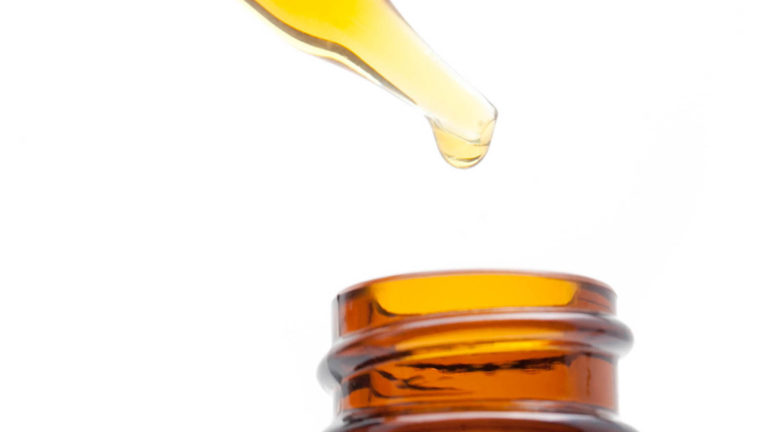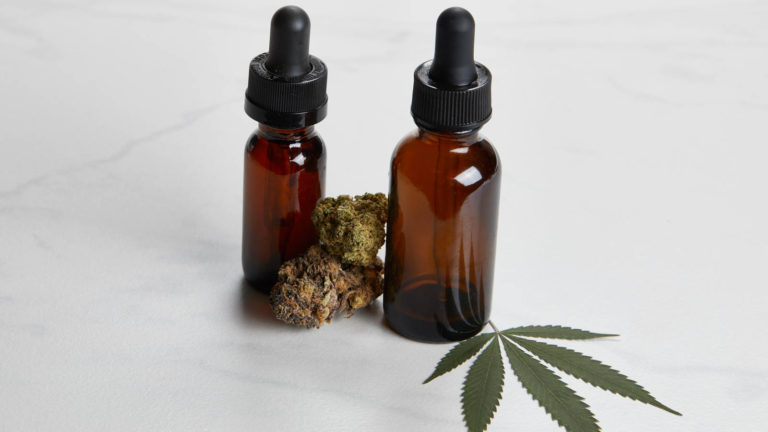Hemp-derived cannabidiol (CBD) oil and other CBD products are readily available in Utah. House Bill 3001, also known as the Utah Medical Cannabis Act, was passed on December 3, 2018, and legalized CBD oil containing .3% THC or less. Medical marijuana also became legal under the Utah Medical Cannabis Act for approved patients with qualifying medical conditions. Recreational use of cannabis remains illegal.
Utah has developed licensing procedures for hemp growers, processors, and sellers. The state doesn't license food or beverages containing CBD.
What is CBD?
CBD stands for cannabidiol. It is a non-intoxicating cannabinoid found in cannabis. Cannabidiol is the second-most abundant cannabinoid in the plant after tetrahydrocannabinol (THC). It has many potential therapeutic benefits, including anti-inflammatory, analgesic, anti-anxiety, and seizure-suppressant properties. CBD can be sourced from both marijuana and hemp plants.
Combine THC and CBD to fully employ the entourage effect.
 Photo by: Gina Coleman/Weedmaps
Photo by: Gina Coleman/WeedmapsImage lightbox

Why is CBD sometimes illegal?
The 1970 Federal Controlled Substances Act categorized all types of cannabis, including hemp, as Schedule I, defined as a substance with a high potential for abuse, no accepted medical use, and a likelihood for addiction. The act also prevented further research that may have shed light on the potential beneficial uses of the cannabis plant.
The Hemp Farming Act of 2018 re-classified hemp as an agricultural commodity and made its cultivation federally legal. Further, the act removed some forms of cannabis from Schedule I status by creating a legal distinction between hemp and marijuana. Hemp is cannabis with less than .3% THC, and marijuana refers to cannabis with more than .3% THC. This distinction in federal law effectively legalized CBD that is derived from cannabis with less than .3% THC, as long as it's been cultivated according to federal and state regulations.
The 2018 Hemp Farm Bill legislation does not mean that CBD derived from hemp is universally legal throughout the United States. According to the Farm Bill, the Food and Drug Administration (FDA) has the power to regulate CBD product labeling, including therapeutic claims and the use of CBD as a food additive. The FDA has already maintained that even hemp-derived CBD may not legally be added to food and beverages, or marketed as a dietary supplement.Although the organization has begun to re-evaluate some of these stances on legal CBD products, the FDA has not revised its regulations. The agency also has been strict in its stance against any labeling that could be perceived as a medical claim about CBD.
In addition to federal regulation of CBD, the Farm Bill also gave states the option to regulate and prohibit the cultivation and commerce of CBD. States may also regulate CBD in food, beverages, dietary supplements, and cosmetic products independently, even before the FDA finalizes its policies. Utah represents one such state that chooses to provide regulations regarding the consumption of CBD.
Utah CBD laws
In December 2018, Utah lawmakers passed House Bill 3001, legalizing the production and sale of hemp-derived CBD products. Prior to this, individuals who purchased CBD were required to have a hemp extract registration card. CBD with .3 % THC or less can now legally be purchased by non-patients living in Utah. CBD sourced from cannabis can be legally purchased by medical marijuana patients from state-licensed pharmacies.
 Photo by: Gina Coleman/Weedmaps
Photo by: Gina Coleman/WeedmapsImage lightbox

CBD is legal in what the state calls 'medicinal dosage form' meaning it can't be smoked or added to food or beverages for sale. Accepted forms of consumption include pills, capsules, oil, topical applications, gel, cubes, and lozenges.
Licensing requirements for CBD
Hemp growers, processors, and sellers must be licensed annually by the commissioner of the Utah Department of Agriculture and Food. Licenses will not be granted to anyone convicted of a drug felony at any time or a drug misdemeanor after December 2018.
Growers, processors, or sellers who violate the law are subject to escalating fines, ranging from $100 to $5,000 for repeat offenders. Unlike many states, however, Utahn legislation emphasizes that hemp growers who violate licensing rules are not subject to prosecution under drug laws unless they knowingly grow marijuana instead of hemp. When applying for a license, applicants must disclose the name of anyone who holds more than 2% voting power in the business.
CBD products must be tested and labeled. The state requires testing of products in state facilities. The quantity of THC and CBD must be verified, along with any other cannabinoid listed on the label. Products must also be checked for mold, fungus, and other contaminants.
Utah CBD possession limits
There are no hemp-derived CBD possession limits in Utah at this time.
There are possession limits, however, for CBD products derived from marijuana. Patients with qualifying medical conditions who have a medical marijuana card or a letter of recommendation from their medical provider may obtain up to a 30-day supply.
Where to buy CBD in Utah
CBD hemp oil can be purchased over-the-counter and without a prescription in Utah. Residents are able to buy CBD in a range of forms from retailers such as vape and smoke shops, and small local pharmacies and health food stores. More locations will likely begin to carry CBD products as the state continues to clarify its position. There are benefits to buying CBD oil and other CBD products directly from a licensed retailer, such as immediate access to a product and the knowledge that it conforms to legal requirements.
 Photo by: Gina Coleman/Weedmaps
Photo by: Gina Coleman/WeedmapsImage lightbox

CBD oil sourced from marijuana will be purchasable from an authorized dispensary with a medical prescription. Medical marijuana patients must first obtain a patient registration card.
Consumers can also shop from a wide variety of online outlets for CBD products, read consumer reviews, and ship purchases to their homes. Online shopping also offers the ability to gather detailed information about each product, compare different products and product types, and compare products to find the best price.
CBD brands often have their own ecommerce shop, allowing you to purchase your desired CBD products straight from the source. Products purchased online, however, may not be in line with Utah state legal requirements. You can learn more about where to buy CBD oil on Weedmaps.
How to read CBD labels and packaging
The FDA currently does not allow CBD-infused food, drinks, or dietary supplements to be sold, and hasn't reached a conclusion on regulating hemp-derived CBD products.
While the FDA slowly and cautiously approaches the creation of new regulations for CBD products, the gap between regulated products and anything goes grows wider, leaving consumers at risk of buying poor-quality products.
When buying CBD products, look for this information on the label:
- Amount of active CBD per serving.
- Supplement Fact panel, including other ingredients.
- Net weight.
- Manufacturer or distributor name.
- Suggested use.
- Full-spectrum, broad-spectrum, or isolate.
- Batch or date code.
One of the most important things to pay attention to is whether a CBD product is full-spectrum, broad-spectrum, or isolate.
Full-spectrum means that the CBD has been extracted from a hemp plant along with all other cannabinoids and terpenes, including whatever trace amounts of THC the plant may have produced. Consuming full-spectrum CBD may yield better results thanks to the entourage effect, a phenomenon in which the mixture of cannabinoids and terpenes work together to produce a more pleasant experience.
Broad-spectrum means that the product contains CBD and terpenes, but has undergone additional processes to strip out any THC.
Finally, isolate is a product that has gone through more intensive processing to remove all compounds except for CBD. Consuming isolate may produce different effects than full-spectrum or broad-spectrum CBD, as these products do not produce the entourage effect.

